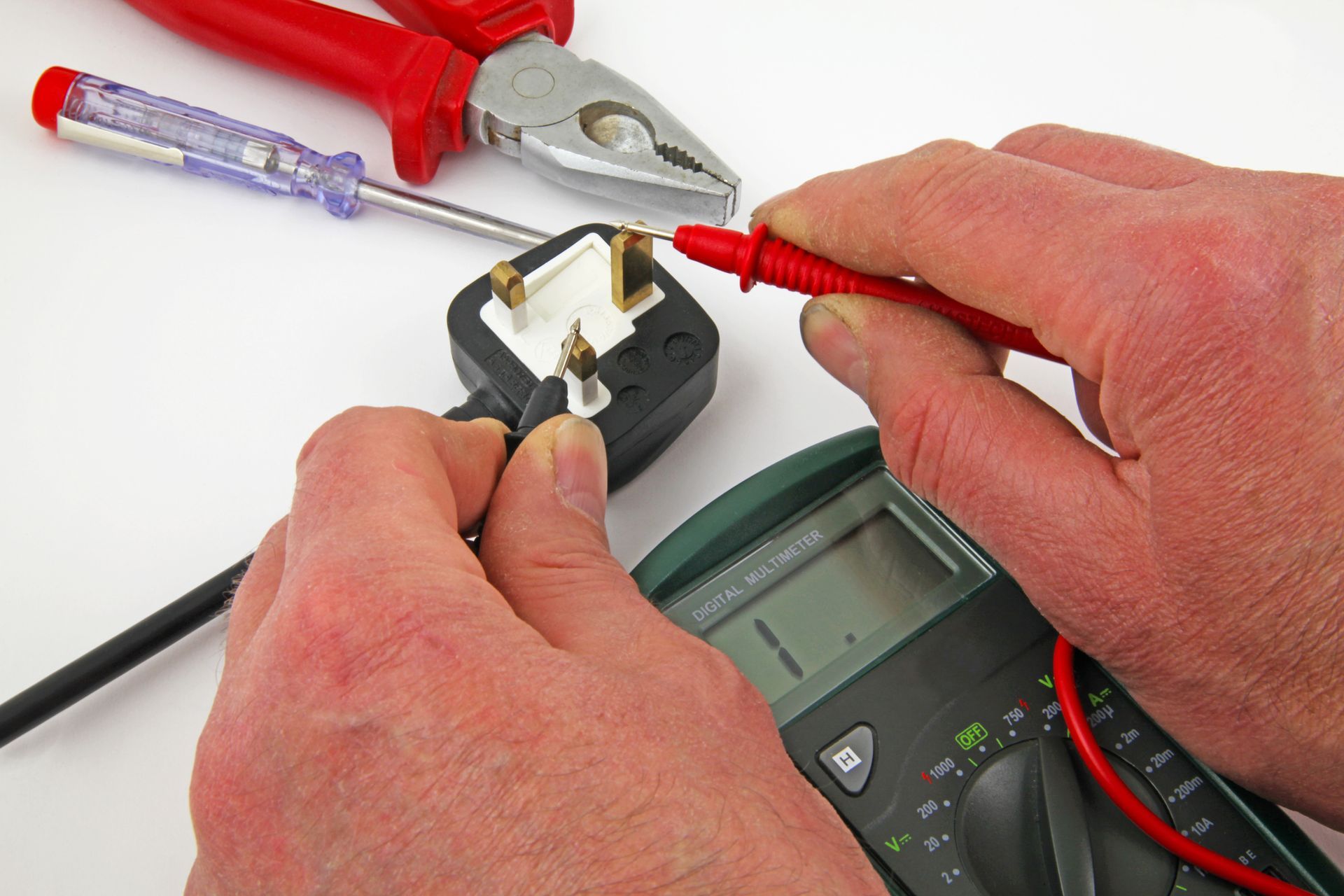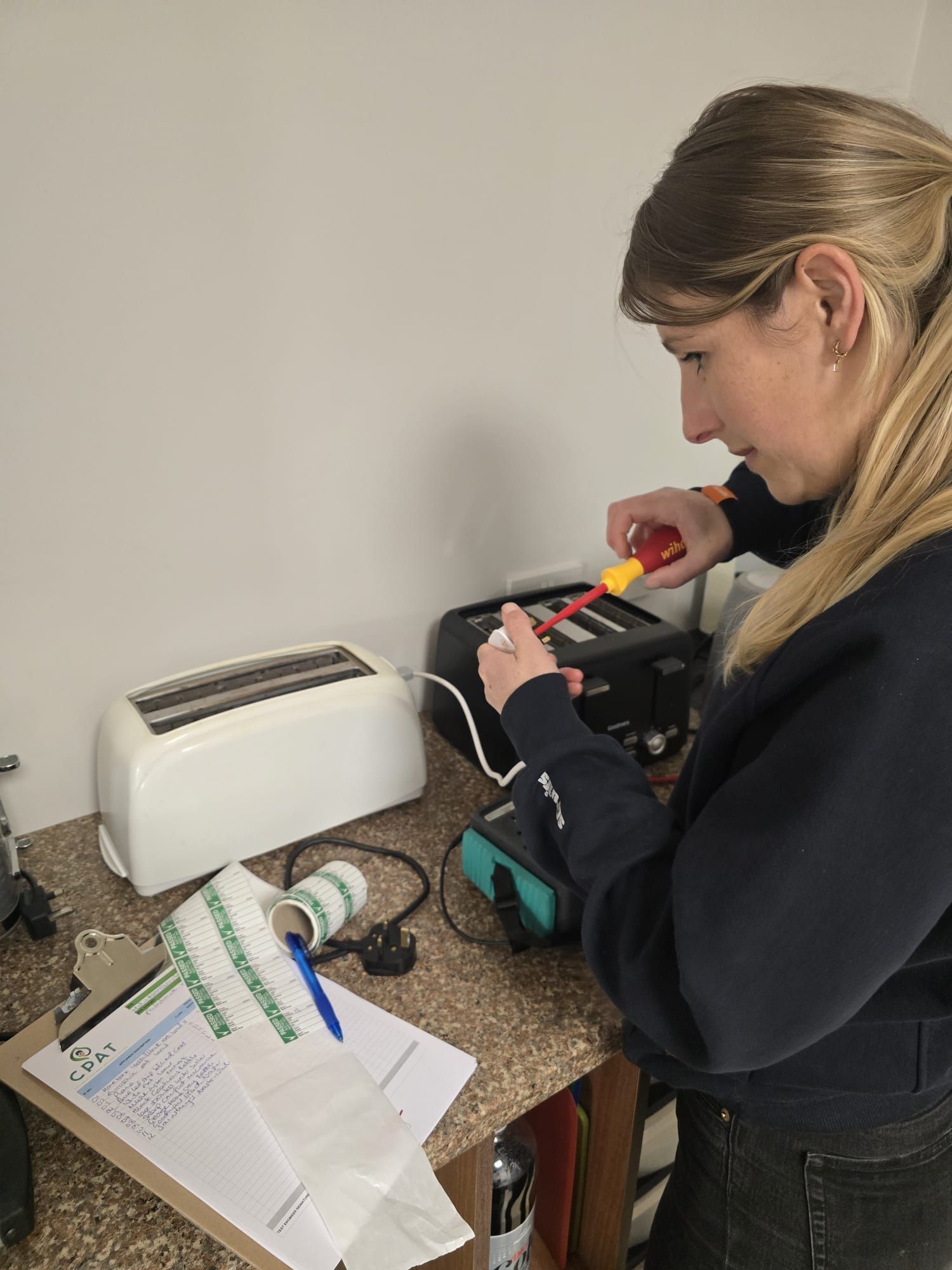Electrical Compliance
Why do you need PAT and/or EICR?
Electrical inspections and testing exist to keep to people and buildings safe. All electrical installations degrade over time and businesses have a legal duty of care to keep clients and staff safe from electrocution and fire. Insurers likely require these inspection reports as well.
Fortunately, we are experienced in PAT and EICR. We efficiently carry out testing with minimal disruption to your business, and can get you up to standard should anything be lacking.
The PAT Testing Process
PAT testing is a routine process to ensure electrical appliances are safe to use. We inspect everything from power cords and plugs to the internal components of an appliance. For a factory setting, this often involves specialised machinery, so our team uses a variety of testing methods tailored to industrial equipment. PAT is equally important for offices, schools, shops, churches etc, and we cater for all. The final report serves as a crucial document, helping the factory management maintain a safe working environment and demonstrate compliance with legal standards.
EICR
Electrical inspections and testing exist to keep to people and buildings safe. All electrical installations degrade over time and businesses have a legal duty of care to keep clients and staff safe from electrocution and fire. Insurers likely require these inspection reports as well.
Fortunately, we are experienced in PAT and EICR. We efficiently carry out testing with minimal disruption to your business, and can get you up to standard should anything be lacking.
Legal Requirements
For landlords, having a valid EICR is a legal requirement in England, Scotland, and Wales. The Electrical Safety Standards in the Private Rented Sector (England) Regulations 2020 mandate that landlords must:
If the report finds any "unsatisfactory" conditions (C1 or C2), landlords must carry out the required remedial work within 28 days (or sooner if the report specifies).
Failure to comply can result in fines of up to £30,000 and can invalidate a landlord's insurance.
Provide a copy of the EICR report to their tenants at the start of a new tenancy.
Ensure every electrical installation is inspected and tested by a qualified person at least every five years.
Retain a copy of the report and provide it to a new electrician upon request.
Commercial Requirements
For commercial properties and businesses, while not an explicit legal requirement in the same way as for landlords, the Electricity at Work Regulations 1989 require employers to maintain safe electrical systems to prevent danger. An EICR is the most effective and widely accepted way to demonstrate compliance with these regulations.
Domestic Requirements
For homeowners, an EICR is not legally mandatory, but it's strongly recommended. It provides peace of mind and is often required by insurance companies or mortgage lenders when buying or selling a property.






